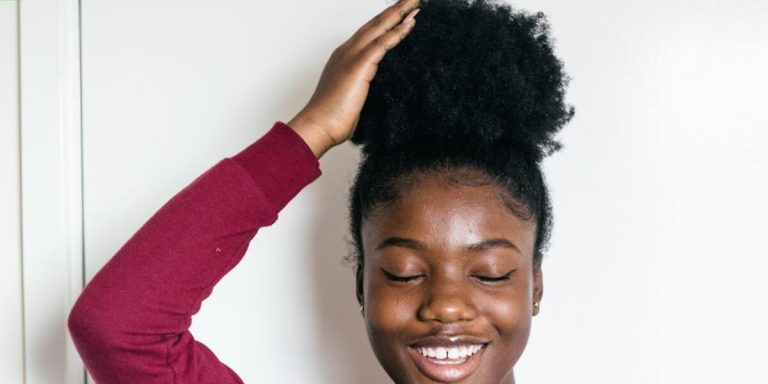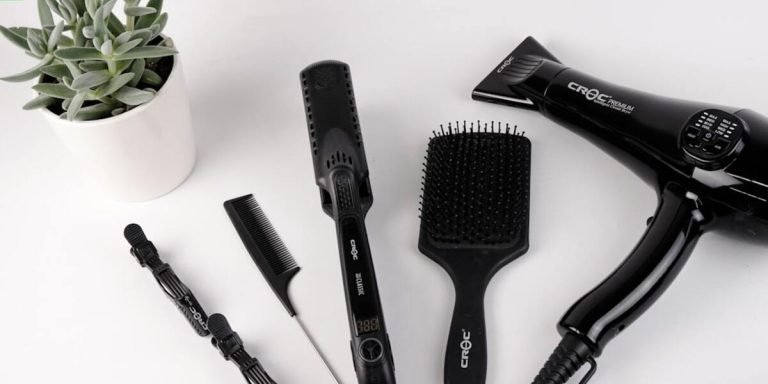Oily Scalp Hair Loss Treatment: An In-Depth Overview for Healthy Hair Growth
Hair loss can be a distressing affair for many, and finding the right solution requires understanding various factors that contribute to it. One significant factor is an oily scalp condition which may lead directly or indirectly to hair thinning and baldness. Consistent research has emphasized treating this problem effectively with appropriate “oily scalp hair loss treatment” methods for promoting healthy hair growth.
This post dives deep into exploring these treatments aimed at combating oiliness and stimulating growth of lustrous locks. You will gain insights about what causes an excessively greasy scalp, how this contributes to hair fall patterns, as well as tried-and-true ways to manage your crowning glory’s health better by selecting suitable remedies from our in-depth overview on oily scalp related hair loss treatments.
Did you know?
Contrary to popular belief, an overly oily scalp can contribute to hair loss. The excess sebum oil disrupts the hair’s natural growth cycle leading to thinning and eventual shedding.
Understanding the Link Between Oily Scalp and Hair Loss
Having an oily scalp can often be a double-edged sword. On one hand, the natural oils produced by your skin help protect your hair and keep it healthy. But when these oils are overproduced, they can lead to several problems – including potential hair loss.
In fact, in recent studies conducted in 2023, medical researchers have identified an amplified level of sebum (oil) production as a key factor contributing to specific types of alopecia or balding conditions.
The correlation between excessive oiliness and hair shedding is more direct than you might imagine at first glance. Oily scalps tend to encourage higher levels of DHT hormones- known culprits behind male and female pattern baldness; clogging up follicles which creates an unfavorable environment for healthy hair growth leading eventually towards its thinning out or falling off altogether.
No matter what kind of concern we lay emphasis on: maintaining the integrity of our locks’ color or volume; warding off premature graying – combating unwanted shedding remains paramount among all concerns related with adopting proper ‘hair etiquette’. For this reason alone ‘oily scalp therapies’ have become increasingly popular within Hair Loss Treatment avenues worldwide.
Managing such situations does not necessitate rigorous routines set inside pricey salons however! Rather understanding new findings about how diet impacts oil production along with use of suitable products that regulate grease buildup without stripping away essential nutrients from the root shaft becomes crucial here in achieving optimum results against greasy scalp induced fallouts effectively!
Identifying Symptoms of Oily Scalp-Related Hair Thinning
Hair thinning due to an oily scalp is a common concern, especially in 2023 when people’s lifestyles are getting busier and hair care often takes a backseat. To initiate the appropriate oily scalp hair loss treatment, it is crucial first to identify its symptoms.
Typically, you may notice excessive greasiness on your scalp even after washing your hair regularly. There might be excess sebum production causing your tresses feeling sticky or heavy right from roots extending towards ends. This not only affects the look of your hairstyle but could also lead to severe issues including premature baldness or patterned alopecia.
Another sign that signals toward this problem includes recurring dandruff flakes irrespective of using anti-dandruff shampoos frequently. These flakes can clog pores on the scalp paving way for eventual follicular damage which translates into losing more strands than what’s considered normal.
Sufferers dealing with this condition have often reported itching sensation as well owing to accumulation of oil and dirt particles over time which triggers inflammation – another major cause behind disrupted healthy growth cycle thus leading towards obvious thinning situation considerably faster period compared those without these predicaments .
Exploring Scientific Research on Sebum Production and Follicle Health
The relationship between an oily scalp and hair loss is intricate, often interwoven with several factors that influence sebum production and follicle health. As per recent studies in 2023, we have established a few key points correlating these elements.
First off, the excess secretion of oil or sebum by our scalp’s distinct glands can lead to various conditions like dandruff or itchy scalp. According to dermatologists’ research worldwide, this constant irritation contributes significantly to weakening the roots of our hairs. Eventually leading us down a path towards premature hair fall.
Sebum essentially acts as your body’s natural moisturizer for hair strands but when overproduced due to hormonal imbalances or dietary deficiencies, becomes detrimental rather than beneficial. The excessive oil accumulation creates an obstructive film around your follicles causing them not only clog up but also restricting optimal nutrient absorption needed for maintaining healthy growth cycles.
An interesting piece of evidence shows how bacteria such as Propionibacterium acnes flourish in overly greasy environments resulting in inflammation – another major culprit behind accelerated shedding patterns recognized across varied demographics battling with thinning locks today.
Evaluating Topical Treatments for Controlling Oily Scalp and Preventing Hair Loss
Topical treatments for an oily scalp and hair loss are not only preferred due to their targeted action, but also because they can be easily integrated into one’s daily routine. In 2023, we’ve seen the emergence of a range of specialized products teeming with natural ingredients and potent compounds that not only control oil secretion but also stimulate healthy hair growth. Let’s delve deeper into understanding these top-of-the-line solutions.
The power players in this arena include essential oils such as tea tree and peppermint oil, known for their sebum regulating properties along with strengthening follicles by enhancing blood circulation at the scalp level. These regimens work meticulously by balancing the pH levels while providing nourishment to your tresses— it is crucial in managing greasy scalps without drying out your locks or irritating sensitive skin types.
Topical applications containing salicylic acid or ketoconazole have shown promising results in clinical studies for reducing excessive oil production. These two key components, commonly found in over-the-counter shampoos and serums, help individuals with an oily scalp and hair thinning issues. Salicylic acid exfoliates surface-level grease build-up, while ketoconazole fights dandruff-causing fungus associated with excess sebum. This combination promotes healthier strands and a vibrant appearance, increasing confidence with beautiful hairstyles to flaunt!
The Effectiveness of Natural Astringents in Regulating Oil Levels
Natural astringents have emerged as an effective solution for those battling oily scalp and associated hair loss. Being naturally formulated, they regulate oil levels without the harsh effects often witnessed with chemical-based treatments.
A cornerstone of any oily scalp hair loss treatment is the reduction in excess sebum production. That’s where natural astringents step in – their ability to tighten skin tissues results in minimised oil secretion, promoting healthier and stronger locks.
Lemon Juice: A familiar kitchen ingredient that doubles up as a potent natural astringent! The high citric acid content not only regulates oil but also clears away build-up debris on your scalp surface, making way for nourished follicles.
Witch Hazel: It’s been touted by many experts until now due to its amazing features that address both excessive oiliness while preventing weak strands prone to breakage. An added benefit? Dandruff control!
Apple Cider Vinegar: A holy grail product when it comes to skincare now claims territory over scalp care too! Regular use can balance pH levels on our scalps thereby reducing excessive greasiness and enhancing strand strength simultaneously.
Tea Tree Oil: Noted for its anti-microbial properties – say goodbye pesky fungal infections causing havoc because of trapped oils under layers of dead cells!
Green Tea Extracts – Packed full antioxidants combined with strong astringent qualities make green tea extracts perfect candidate tackling issue hand effectively subsequently promoting growth healthier tresses.
Role of Medicated Shampoos in Balancing Scalp pH and Reducing Shedding
Pivotal in many oily scalp hair loss treatment routines, medicated shampoos encompass active ingredients that fight against excessive oil production and help maintain healthy strands by balancing the skin’s pH levels.
The first key ingredient you may come across is Ketoconazole. Found primarily in anti-dandruff shampoos like Nizoral, this antifungal agent battles excess yeast – one major culprit for greasy scalps and thinning hair. By addressing these root causes directly at their source, Ketoconazole creates conditions conducive to balanced oil production leading to healthier-looking locks with regular usage.
Another notable component found common in medicated shampoo formulas is Salicylic Acid—widely known for its prowess as a deep-cleansing exfoliator but less recognized for its effectiveness when it comes down to maintaining optimal scalp health.
This wonder acid removes not just dead cells or impurities from your head’s surface but also penetrates deeply into pores eliminating severe sebum build-up—an underlying factor causing prevalent issues such as inflammation or blocked follicles resulting often into abnormal alopecia patterns.
We should also shed some light on Zinc Pyrithione—tasked about taming stubborn flaking besides regulating extreme secretion of natural oils—a primary trigger behind both bothersome itching sensations and dramatic fallout scenarios alike.
Lifestyle Adjustments to Combat Oily Scalp Induced Hair Loss
Lifestyle adjustments play a pivotal role in combating oily scalp induced hair loss. It may seem like an uphill battle, but with some minor changes in your daily routine and habits, the control is entirely within your hands. Adhering to these lifestyle switches mentioned below can help you restore balance on your scalp and mitigate hair fall triggered by excess oil.
To start off, focusing on maintaining balanced nutrition should top our list. A healthy diet rich not only helps in general well-being but also ensures that our body receives all essential vitamins and minerals necessary for proper hair growth. Incorporation of foods high in vitamin B5 (like avocados), zinc (such as spinach) or selenium (including nuts) could assist greatly towards improving overall hair health while preventing further damage caused due to excessive oil production.
Moreover, paying heed to stress management strategies such as meditation or yoga has been known to lower cortisol levels – the stress hormone often linked with increased sebum secretion leading to oily scalps. Ensuring good quality sleep combined with regular exercise routines not just reduces tension but promotes enhanced blood circulation which aids significantly towards stimulating follicular activity thereby curbing incidences of hair loss resulting from satiated scalps.
Dietary Changes That Can Help Reduce Excess Sebum Secretion
Having an oily scalp can lead to several hair problems, including uncomfortable itchiness, dandruff and most crucially – hair loss. However, by introducing some strategic dietary changes into your lifestyle you may be able to reduce excess sebum secretion which is often responsible for these issues.
First of all, it’s essential that we understand the origin of our problem – Sebum. It’s a natural oil produced by our body’s sebaceous glands to keep the skin hydrated and healthy. But when overproduced in areas like the scalp it leads to oily conditions detrimental for your hair growth goals.
Let’s dive deeper into a few actionable diet strategies that promote balanced sebum production:
1) **Consume Omega-3 Fatty Acids**: Foods rich in omega-3 fatty acids such as flaxseeds or fish help regulate oil production in the body; they also aid inflammation reduction which proves beneficial if you are experiencing related symptoms.
2) **Hydrate Regularly**: Drinking ample water throughout each day helps maintain overall bodily functions but more so aids proper digestion ensuring nutrients reach the roots of your hairs through blood circulation improving their health directly.
3) **Avoid Excess Sugars & Saturated fats:** Added sugars tend to stimulate insulin levels leading further stimulation towards elevated oil production whereas saturated fat found commonly within processed foods increases testosterone resulting similar effects on gland function making them both potentially harmful contributors towards increased sebum flow.
Stress Management Techniques to Minimize Impact on Hair Health
To manage stress and treat hair loss from an oily scalp, try these techniques:
- Practice deep breathing exercises.
- Engage in regular physical activity.
- Try mindfulness or meditation practices.
- Ensure you get enough sleep every night.
- Consider talking to a professional if stress becomes overwhelming.
1. Mindfulness Meditation: Incorporating daily mindfulness meditation into your routine can help reduce stress levels and improve overall well-being. By focusing on the present moment without judgment or distraction, you promote relaxation and peace.
2. Regular Exercise: Engage in regular physical activity such as walking, running or yoga that improves blood circulation in the body including the scalp helping nourish hair follicles.
6.Positive Affirmations: Speak positive words about yourself every day – thoughts influence actions profoundly! Approachment self-care holistically rather solely limiting focus onto using topical treatments alone helps tackle root causes driving excessive oiliness alongside facilitating healthier mane appearances overall!
Conclusion
In conclusion, managing oily scalp hair loss isn’t a daunting task as it initially may seem. By utilizing an efficient oily scalp hair loss treatment plan and maintaining consistent hygiene habits can lead to substantial improvements over time. The journey towards healthy hair growth might be slow paced but remember that consistency is key.
And there’s always more for you! Our website features a plethora of articles about diverse Hair Loss Treatments if you’re keen on exploring further options or need additional guidance. We strive to provide valuable information curated specifically with your needs in mind because we believe everyone deserves access to the necessary tools for their own unique path toward optimal hair health.
Don’t hesitate! Explore our diversified resources today.







